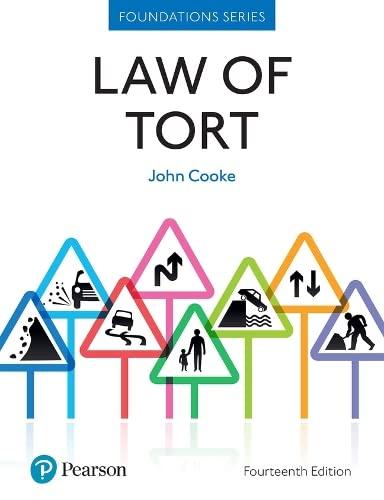Question
In Kant's time, peasants would sometimes sell their teeth to wealthier individuals who needed them. Kant objected to this, and he would presumably, for similar
In Kant's time, peasants would sometimes sell their teeth to wealthier individuals who needed them. Kant objected to this, and he would presumably, for similar reasons, object to selling organs (like kidneys) in the present day. Which of following most accurately characterizes Kant's reasons for objecting to selling parts of one's body?
a) The pain caused by having a tooth or an organ extracted is severe severe enough to outweigh the pleasure that the recipient will enjoy.
b) Extracting teeth and organs is digusting, and, therefore, morally wrong.
c) Extracting teeth and organs inherently involves a certain amount of risk. Something could go wrong, and the procedure could result in infection, further illness, or death. Kant says that we are not allowed to take risks with our lives.
d) By selling part of her body, a person would be treating herself as a mere means, and not as an end in herself.
e) An individual's body is owned by God, and so she is not free to do with it whatever she wishes. God has ultimate ownership over her body, and so selling a tooth or an organ would require selling something that one does not actually own.
Step by Step Solution
There are 3 Steps involved in it
Step: 1

Get Instant Access to Expert-Tailored Solutions
See step-by-step solutions with expert insights and AI powered tools for academic success
Step: 2

Step: 3

Ace Your Homework with AI
Get the answers you need in no time with our AI-driven, step-by-step assistance
Get Started


